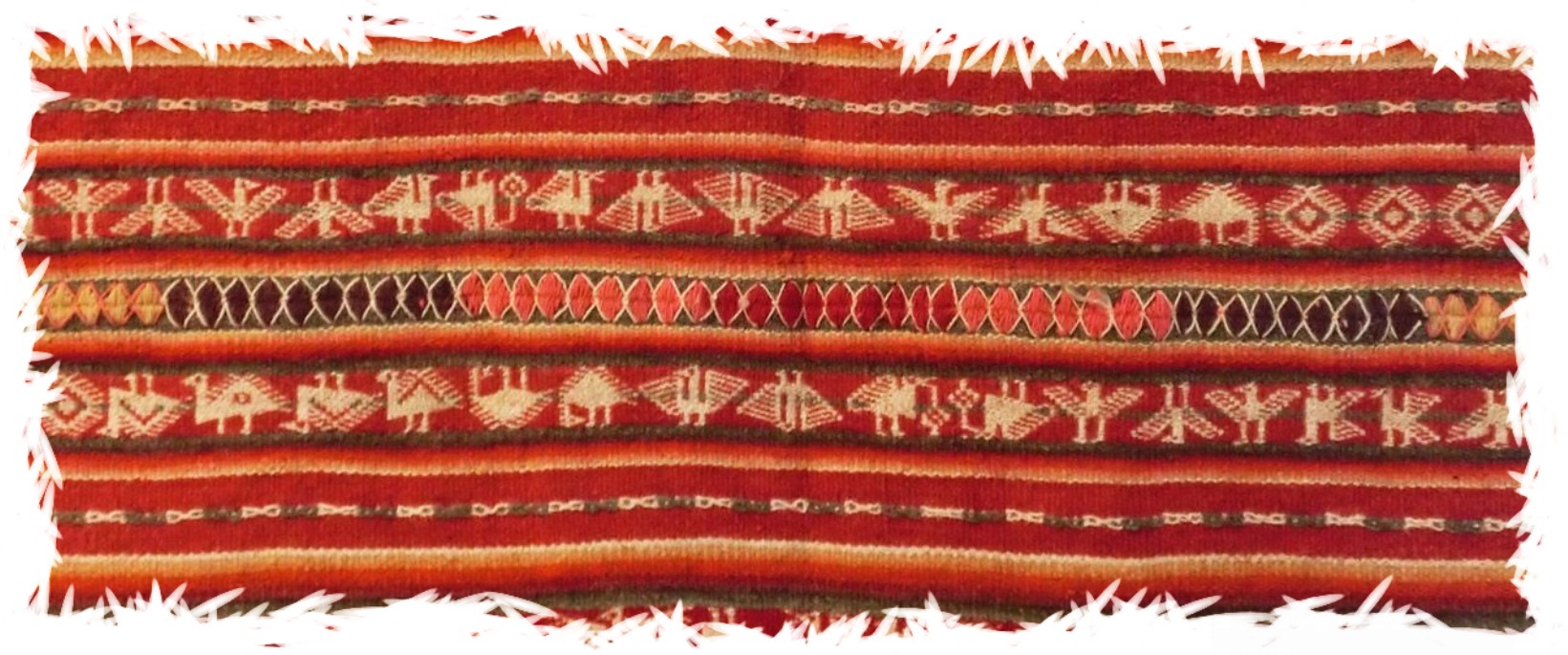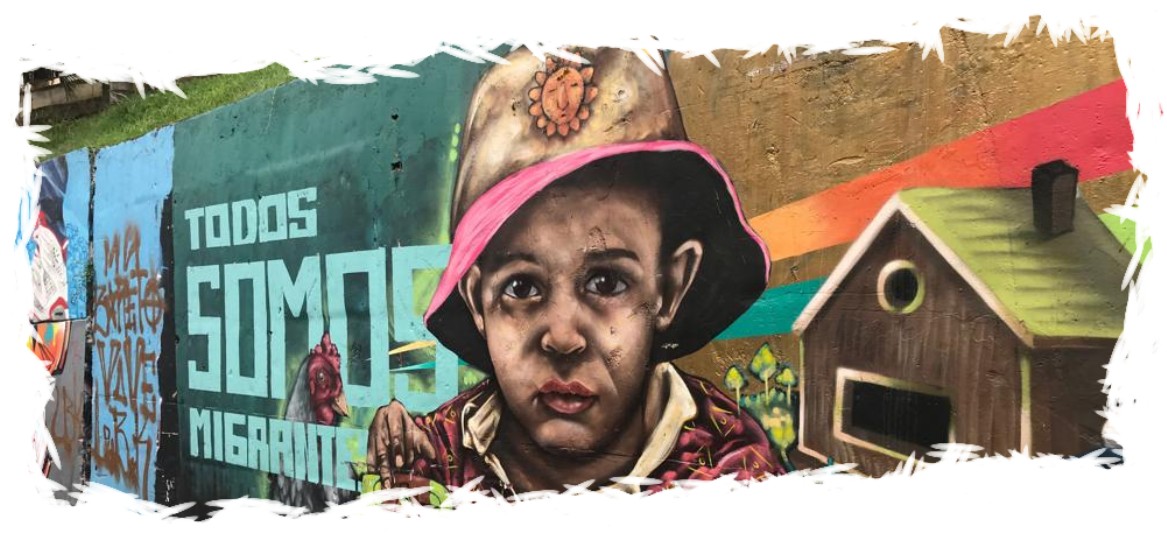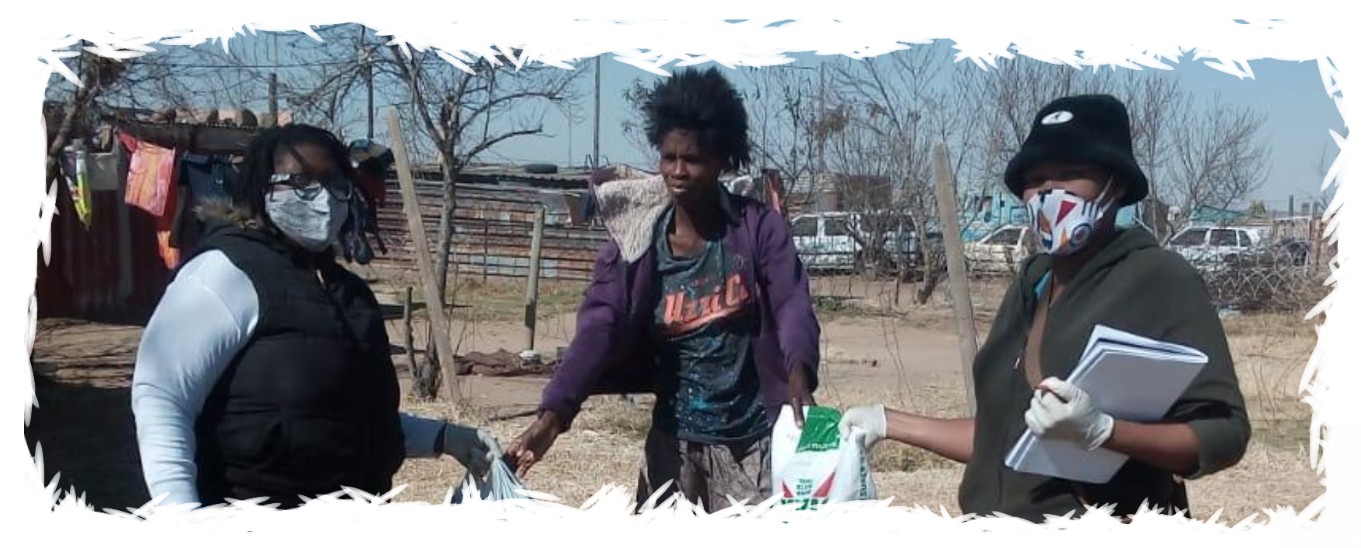GTA's Newsletter #02 - October 2020
Table of Contents
GTA's Newsletter #02 - October 2020

Editorial
Dear readers,
It is our pleasure to share Global TapestryThe weaving of networks of Alternatives of AlternativesAre activities and initiatives, concepts, worldviews, or action proposals by collectives, groups, organizations, communities, or social movements challenging and replacing the dominant system that perpetuates inequality, exploitation, and unsustainabiity. In the GTA we focus primarily on what we call "radical or transformative alternatives", which we define as initiatives that are attempting to break with the dominant system and take paths towards direct and radical forms of political and economic democracy, localised self-reliance, social justice and equity, cultural and knowledge diversity, and ecological resilience. Their locus is neither the State nor the capitalist economy. They are advancing in the process of dismantling most forms of hierarchies, assuming the principles of sufficiency, autonomy, non-violence, justice and equality, solidarity, and the caring of life and the Earth. They do this in an integral way, not limited to a single aspect of life. Although such initiatives may have some kind of link with capitalist markets and the State, they prioritize their autonomy to avoid significant dependency on them and tend to reduce, as much as possible, any relationship with them.' second newsletter with you. The Global Tapestry of Alternatives or GTAGlobal Tapestry of Alternatives as a process or a dialogue began in 2014 and was officially launched in the year 2019.
The Global Tapestry of Alternatives seeks to build bridges between networks of Alternatives around the globe and promote the creation of new processes of confluence. You can know more about the project, in our introductory note.
This newsletter comes to you at times of immense uncertainties that pose very serious challenges and have social, economic, political, cultural and ecological implications for most of us. The attempt of this newsletter is to bring to you the news, perspectives, thoughts, ideas, reflections, and dialogues on alternatives to the current dominant regime. Importantly, what can do they offer us as pathways towards just, equitable and ecologically wise futures. It is a humble attempt to bring together the collective envisioning of these pluriversal alternatives by creating a space for sharing and dialoguing.
We intend to share this newsletter every two months to share perspectives, news on activities being seeded through GTA, as well as perspectives/news/thoughts/questions from tapestry weavers and endorsing organisations and networks. We do not see it as a newsletter that is simply a conglomeration of news/updates but rather as a process of knowing each-others' work, engaging with ideas, facilitating collaborations and initiating co-writing and co-learning processes. Yes, the objectives are ambitious and that is why we need your support, your contributions and engagement. We invite you to this sharing, reflecting, dialoguing, healing, and envisioning space.
This newsletter features updates from our weavers in India (Vikalp Sangam) and Mexico (Crianza Mutua), community responses in these times from our endorsing networks- Yes to Life No to Mining and WoMin and a perspective piece from our core team member, Arturo Escobar.
News from GTA

Webinars updates
Post the Covid crises and dramatic change in our plans of activities, GTA initiated the process to facilitate sessions with activists, scholars, researchers, mobilisers and practitioners across the world who have engaged on exploring systemic alternatives to the dominant regimes, contesting its roots in capitalist, patriarchal, racist, statist, and anthropocentric forces. The fortnightly conversations aim to collectively explore with a range of initiatives a possibility of a just, life-centred and respectful transition into the future. It is important to explore not only what can be done, but also the tough question of how, and by whom? And where possible, to make the discussion relevant to the current crisis.
We have had eleven dialogues until the end of September exploring the opportunities of promoting and creating systemic alternatives.
For our 7th dialogue, we were joined by members May First Movement Technology, a non-profit that engages in building movements by advancing the strategic and collective use of technology for grassroots struggles, global transformations and emancipation without borders.
Our 8th dialogue focussed on history and challenges of Patato Park community, a community managed Biocultural Heritage Territory and how their approaches based on Sumaq Kausay or Buen Vivir can offer us pathways out of Covid and help in envisioning just futures.
In the 9th dialogue we explored “Wellbeing Economy“, which aims to break free from the growth mantra, and build a better society that promotes social justice on a healthy planet by empowering citizens as the collective leaders of tomorrow.
This was followed well by our 10th dialogue on the concept of Degrowth along with the authors of the latest book 'Exploring Degrowth' which shows why degrowth could be compelling project for certain parts of world. The Degrowth movement demands that we slow down the economy by transforming our economies, our politics and our culture to live within the Earth’s limits. The discussion addressed the practices and strategies of the movement, looking at its strengths and weaknesses.
In our eleventh dialogue, Tero Mustonen, a fisherman from Finland, shared with us how transformative climate change is at present impacting cryosphere (snow-ice) based cultures, lifestyles and professions like winter fisheries. Secondly, by reviewing the Landscape Rewilding Programme by the Snowchange Cooperative links between equity, Indigenous- and community-led action on climate change and a “return to the land” are being discussed as globally-relevant actions to address our historic moment in time on the Planet.
In our last session, on October 4th we shared with women farmer’s collective responses in India.
In the upcoming months we will feature indigenous community responses from Bolivia, responses from the eco-feminist networks in Africa and reflections on resistance and emergence from Lebanon.
You can listen and watch to all our webinar recordings in this link.
Collaboration with the World Social Forum International Council
Global Tapestry of Alternatives participated and presented the GTA at the International council meeting held on September 12, 2020 to explore convergences, build alliances and express the unique addition that GTA is making in the global movements that are attempting to re-articulate our resistances and alternatives.
The GTA will continue participating in the process of re-launch the WSF, proposing concrete actions of collaborations, towards the planned next international gathering to take place in Mexico in 2021.
New endorsing members to GTA
During the recent months we received the following listed new endorsements.
Organizations:
- Red Universidad y Compromiso Social de Sevilla, Spain
Individuals:
- Bayo Akomolafe: Executive Director at The Emergence Network, Nigeria
- Barry Gills: Professor, Development Studies, University of Helsinki
- Firoze Manji: Publisher, Daraja Press
- Thomas Moore: anthropologist, ICCA Consortium, Peru
- Ben Parry: artist, curator and independent researcher at the intersections of art, activism and urban space
News from the Weavers

Vikalp Sangam updates
Vikalp Sangam process in India seeded a new process called the Vikalp Sutra (threads of alternatives) a collective, non-hierarchical platform initiated in June 2020, to facilitate dignified livelihoods, workers’ rights and economic democracy in India. The network aims to promote community self-reliance, based on the principles of dignity, justice, equity, peace and ecological sustainability. You can read about it here.
A graphic novel documenting the experiences of solidarity and resilience by communities in India has been released. You can access to the document “Extraordinary work of 'ordinary' people; beyond pandemics and lockdowns (graphic novel version)” in this link
Crianza Mutua updates
Mexico: weaving in difficult times
On August 8, various groups of Crianza Mutua met again virtually to continue our conversations, reflections and exchanges. This is the third time that we met virtually due to lockdown but as a resistance we continued to bond and find ways to work together. This call was attended by organizations, groups and experiences that are part of Mutual Crianza from various regions, such as Guadalajara, Oaxaca, Hidalgo, Veracruz and other parts of Mexico.
Throughout this meeting we shared our ways of building “sidewalks” at this time that “our roads” have been destroyed. We are creating ways for more people to get involved in these emerging projects. Primarily, on the production and consumption of agro-ecological products, autonomous learning spaces and communities, care for life, health and midwifery, as well as the defence of the territory.
Among all the attendees we agreed that this period has been complex, however, it has given greater visibility to the alternative projects. It is time to adapt them, not to let go, for example, using the online networks to connect with people from different geographies and learn of their struggles and resistance.
Along with our virtual encounters, each network is walking on their processes at its own pace, some continue without wanting / being able to connect to the networks, but in their own ways they are supporting organic markets, production and consumption networks, spaces of food sovereignty, and in general, they are shaping autonomy.
Colombia: an introduction to the process
“Crianza mutua” (Mutual upbringing) is an ongoing process to identify, document, articulate and give visibility to experiences that are challenging the dominant system. The name comes from the philosophical practices and peasant technologies of the ayllus of the people of Lake Titicaca, Puno, particularly the fishing and farming communities that live on the border of Peru and Bolivia. These communities take care of the smaller aspects of life, live in harmony and coexistence with earthly deities by incorporating human and non-human communities.
This process was born in Mexico and its seed is now growing in Colombia. After more than a year of walking together, they had a national encounter. They took the decision to give themselves some visibility, both for their own protection and to also inspire others by illustrating through their stories and experiences on what is possible to do in these current conditions of the world.
From feeling rooted in collectives, movements, processes and communities in resistance and re-existence we insist on creating transitions that go against the eco-ethnocide that we suffer as victims of development. It is very important to point out that the massacres of leaders in Colombia in neo-extractivist times is directly linked with the fact that many women, traditional doctors and teachers openly oppose development projects, These projects are promoted by interests linked to the mega-construction industry, monoculture plantations, and legal and illegal mining.
A good example to illustrate the weaving of alternatives to these dominant crises comes from “chocolate” . Diverse stories of cocoa from Ríosucio, the Sierra Nevada de Santa Marta, Guachené-Cauca, San Basilio de Palenke in Colombia, Ayotzinapa-Guerrero in Mexico and the Netherlands contrast the monoculture and mono-cultural version of industrial chocolate. The protection of cocoa brings ancient memories of self-sufficiency from the re-visiting of peasant practices. The towns of the Afro-Abya Yala Diaspora can be replicated in urban areas with the recovery of native seeds against mega-industry and land grabbing that is typical of large plantations. Learning from nomadic pluriversity “de a pie” (on barefoot), mainly of the rivers with the ‘Tejido de Colectivos-Universidad de la Tierra’ in bio-territories Kumanday, Pacífico and Valle del Cauca has enabled us to recount stories of smells, flavors, proximal senses from our childhood. Women have maintained planting traditions and the old recipes that survive even now in the midst of all exploitation.
In this way, the weaving between groups, collectives, communities and universities, walking and sharing together, are in turn finding ways of healing collectively from the damages of individualism. This is allowing us to access ancient and contemporary knowledges that make it possible to return to the earth. Along with this, we are revisiting our eco-spiritual techniques and millenarian philosophies that enable sowing and nourishing of what we cultivate. With all of this, we arrive at pluritopias - multiple senses, places, temporalities and “sutures of socio-territorial tissues and broken vital world”. From these unconventional perspectives, appealing to a poeticization of action and rooted in a decolonial gaze, this group continues to take its footsteps in Colombia.
Perspectives from GTA core team
Thinking about the post/pandemia- Notes from Latin America

By Arturo Escobar
The COVID-19 crisis has brought to the fore a renewed awareness of the possibility –for many, an absolute imperative—of a radical eco-social, economic, political and cultural transitions in every society and in the world at large. This notion has found powerful expression in a slogan that has been circulating in Latin America in relation to the crisis: No volveremos a la normalidad, porque la normalidad era el problema (“We shall not go back to normal, because ‘normality’ was the problem to begin with”). A recent “Eco-Social Pact from the South,” issued by Latin American social movements and intellectuals, attempts to give form to this desire).
News from the endorsing organisations
Organising from below in a time of crisis
By Samantha Hargreaves and Zo Randriamaro (WoMin African Alliance)

Centring an African ecofeminist perspective on COVID 19 and alternatives to development
The novel Coronavirus has triggered a significant global crisis, with the harshest impacts being felt by the poor and working classes across the world. On the African continent, this ‘new’ pandemic encounters numerous other crises of climate heating, environmental degradation, unemployment and rising poverty, land grabs and widespread hunger, increased violence, specifically violence against women, and civil conflicts in many countries. Crisis layered upon crisis leaves the majority of Africa’s people, and vulnerable people in particular, under or malnourished, with immune systems already weakened by diseases linked to poverty and rising temperatures, and living without proper housing, water and sanitation services necessary to safeguard against disease and ill health.
Saying Yes to Life, No to Mining during a global pandemic

Yes to Life, No to Mining (YLNM) is a global solidarity network of and for communities, organisations and networks who are standing up for their Right to Say No to mining and advancing life-sustaining, post-extractive alternatives- whether they be new or ancient. Our members hail from every inhabited continent. We are bound together in the shared belief that saying no to mining is not a selfish, negative or anti-development position, but an absolute necessity at this moment of social, economic and ecological crisis.